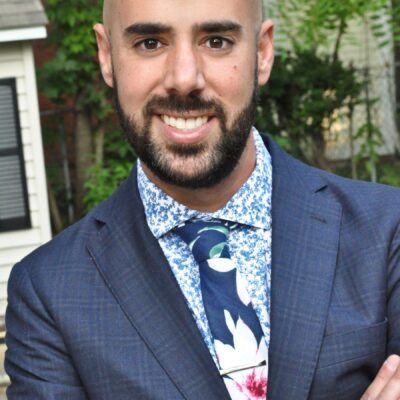To protect the new generation – which certainly includes LGBTQ+ youth – the past is a prologue.
Transgender people are under attack – perhaps worse than we’ve ever seen in our lifetimes – in Florida and many other parts of the nation.
The party in the supermajority of the Florida Legislature towed the agenda of Gov. Ron DeSantis in the 2023 session, passing several laws targeting lesbian, gay, bisexual, transgender, and queer (LGBTQ+) people. Transgender people have been hit hardest.
Last month alone, the legislature banned gender-affirming treatment for minors and treats that care as “harmful,” rather than the lifesaving care that it is. Legislators banned teachers and students from using pronouns that do not match someone’s birth certificate. They barred transgender people and others from using bathrooms that correspond with their gender identity in government buildings, including in prisons. They imposed new punishments for establishments that allow minors to attend “adult live performances,” largely understood as an attack on drag shows. And their threats to the LGBTQ+ community continue.
DeSantis and extremist Florida politicians have passed these and other laws under the guise of protecting children from what they call “wokeness.” While rarely defined, “wokeness” has become a catch-all term for what conservatives view as leftist or even socialist propaganda in the name of social justice that they believe has crept its way into the state’s institutions of power – from the classroom to the workplace to the courthouse.
This political illusion is often described as the “culture war.” But, for transgender people and others directly in the crosshairs, it is much more. They are direct assaults on transgender and other people’s right to exist. Florida has a long history of attacking LGBTQ+ people, especially those most vulnerable among them – transgender folks and people of color.

The “wokeness” boogeyman isn’t new, either. It’s the same – or similar – script with a different cast.
In 1959, a woman named Charlotte F. McLeod married in Miami in an unremarkable ceremony. Weeks later, the nation learned that McLeod was transgender, and her marriage made headlines. Because they rejected McLeod’s transgender identity, several institutions – including the courts, media, and church – panicked that Florida had just permitted same-sex marriage.
As a result, McLeod was run out of town and made her way to California. She lived a difficult life and regularly endured abuse and discrimination.
This is not unlike the story of one of South Florida’s most famous families today: husband and basketball star Dwyane Wade and wife and actor Gabrielle Union, who recently relocated from Miami to California. They did so, in part, to make life safer for their transgender daughter amidst the onslaught of Florida’s anti-trans policies.
Back in 1959, when the world learned that McLeod was trangender, she got embroiled in a puritanical Cold War-era culture that treated LGBTQ+ people as threats to American families, children, and even national security. Many viewed McLeod as no different than communists who threatened to destroy the United States and the American way of life.
By the 1970s, Miami housed some networks and organizations that helped build a community for transgender people, including the multi-ethnic Transsexual Action Organization. But by the end of the decade, the city had become ground zero for the nation’s so-called culture wars.
In 1977, Miami-based celebrity Anita Bryant launched a campaign called “Save Our Children” to undo a county-wide ordinance that had provided legal protections for lesbians, gays, and bisexuals in employment, education, and public accommodations. Bryant and her supporters argued that gay people were inherently predators who would corrupt their children.
The language of the 1970s campaign is eerily similar to what DeSantis and other fundamentalists use today to garner support for their anti-LGBTQ+ measures.
Bryant took the issue to Miami voters, who overwhelmingly supported her argument that gay people posed a threat to children. As a result of Bryant’s support, the progressive and short-lived ordinance that offered gay and bisexual people legal protections was overturned later that year. The county would not secure those legislative protections for another two decades, in 1998. Securing similar protections for transgender people took even longer.
The county finally voted to extend the same protections based on gender identity and gender expression in late 2014. The issue, however, was met with great controversy. Many of its opponents deployed the decades-long “boogeyman” narrative that such protections reflected socialist influence and represented a danger to all children.
The advancements hard fought to protect LGBTQ+ people, especially youth, are quickly being undone by state lawmakers.
To protect the new generation – which certainly includes LGBTQ+ youth – the past is a prologue. If we dare to create a more perfect union, we must learn from our history and stand firmly in support of one another to achieve full liberation for us all.
Julio Capó, Jr. teaches history at Florida International University and is the author of the award-winning book "Welcome to Fairyland: Queer Miami before 1940."

